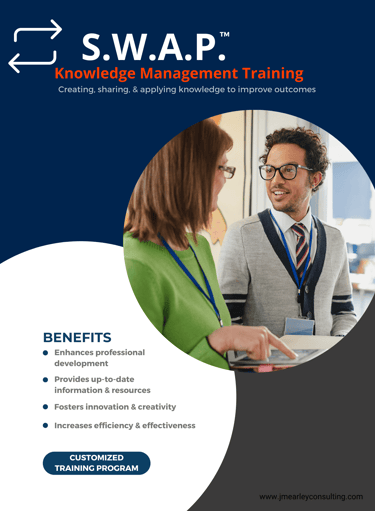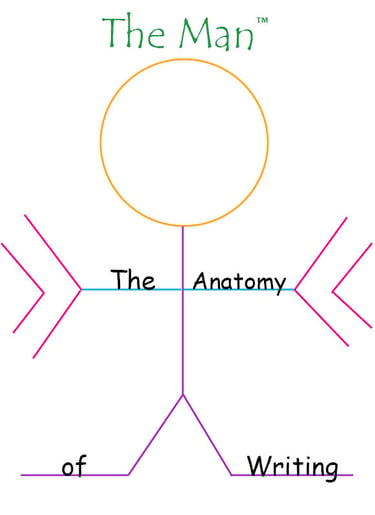We are devoted to developing human potential. Our mission is to give leaders the tools necessary to lead with emotional intelligence, create innovative solutions, and make informed decisions that improve employee capability, create high-performing teams, and exceed customer expectations.


Training

Customized


Knowledge Management
Knowledge management is the intentional process of defining, structuring, retaining, and sharing the knowledge and experience of employees within an organization. It is the process of creating, sharing, and applying knowledge to improve processes, outcomes, and practices by enabling organizations to capture, organize and leverage that knowledge to the greatest possible benefit. Ideally, it enables an Employee-generated Learning approach, which enables more experienced employees (whom we can refer to as “ subject matter experts ” or “SMEs”) to record and share their knowledge with other employees. Benefits include:
Enhances professional development and creates an efficient workplace - where every employee has access to relevant and up-to-date information and resources.
Increases efficiency & effectiveness - empowering them with deeper insights and understanding
Improved customer service - with better access to information, employees can provide better customer service.
Fosters innovation & creativity - with more information available to employees, they can be more creative and innovative in their work.
Better collaboration - with better access to information, employees can collaborate more effectively.


The effects of the pandemic on student reading have been widely documented. Recent studies find that children are severely behind in reading. New studies now show that about a third of children in the youngest grades are missing reading benchmarks, up significantly from before the pandemic. While the literacy crisis did not start with the pandemic, stagnant or declining performance in reading and widening gaps between high and low performers shows that it has been exacerbated by it. Reading, critical thinking skills, and writing are closely connected. Education Week notes that learning how to write well can make students better readers; when children are taught how to write complex sentences and compose different kinds of texts, their ability to read and understand a wider variety of writing improves.
This professional development workshop is designed for 5th - 8th grade reading, English, and English Language Arts (ELA) teachers to supplement evidence-based reading practices in schools like the Science of Reading by providing a strong foundation on which to create interventions, strategies, and methodologies to assist struggling students.
The Man Writing Series


Developed by a 36-year veteran educator in response to the difficulties her students experienced in constructing comprehensive written responses, this 6-hour workshop will enhance teachers' knowledge and skills in literacy instruction. Teachers will learn evidence-based practices, effective teaching strategies, and will be provided with practical tools to support student literacy development. The workshop will cover comprehension strategies, techniques for integrating reading and writing, and best practices for enhancing writing across subjects. This workshop tackles academic learning needs by offering the following advantages:
Improved instructional techniques
Enhanced student engagement
Increased student achievement
Alignment with state literacy standards
In addition to the multiple application opportunities built into this workshop, teachers will have the opportunity to develop, and receive feedback on individual lesson plans. The workshop gives teachers a jump start in integrating course methodologies, strategies, and tools into their instruction, giving them access to both the course facilitator and their peers for support and guidance.
Contact us today to discuss how our workshop aligns seamlessly with your school's goals and helps improve student reading comprehension and performance on achievement tests.
